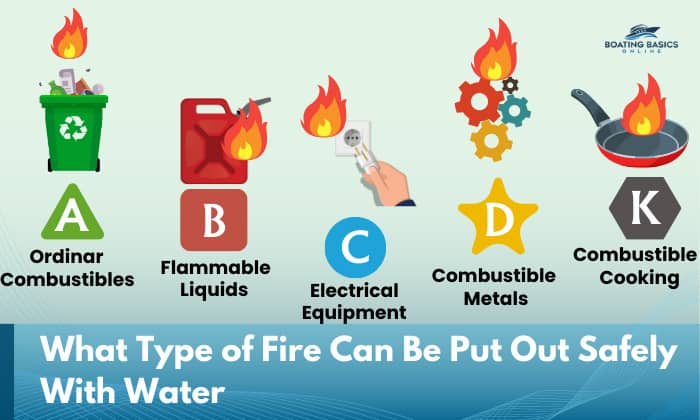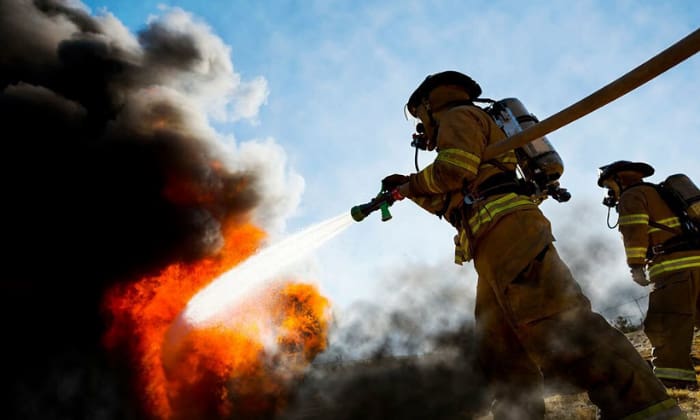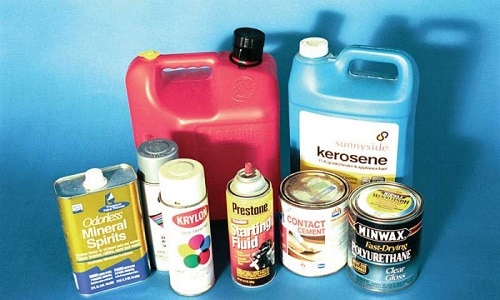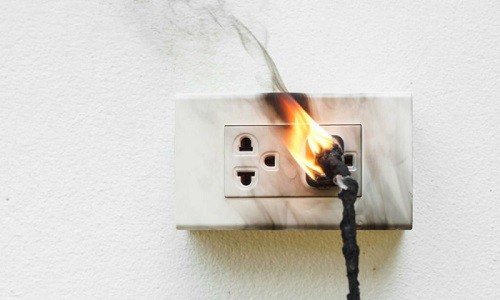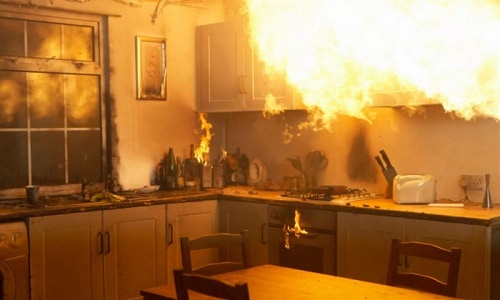Whether you’re a boater or not, you need to be aware of what type of fire can be put out safely with water because, in the end, safety should be promoted anywhere.
It’s also worth knowing what class of fire you’re handling to avoid making potentially serious mistakes. The only type of fire that can be extinguished with water is a Class A fire.
If you want to know why you should steer clear of using water to kill certain types of fire, then continue reading.
Table of Contents
The Only Class of Fire You Should Put Out With Water
Whether you’re on a boat or on the ground, only Class A fire can be put on with water. But what is Class A fire in the first place?
A Class A fire is one that arises due to any flammable material igniting. These include cloth, wood, rubber, paper, and light plastics. It’s also the type that tends to leave behind residue like ash.
You’ll have to look at different factors to know why it’s the only class water can handle:
- For one, a Class A fire is more susceptible to cooling from water. Water absorbs the heat, effectively lowering the temperature of the burning material. This helps prevent its spread.
- It can also be “smothered” because as water turns into steam upon contact with the flames, it displaces oxygen. Oxygen is essential for a fire’s “survival”.
And, these are mostly the properties that define class A fire. So don’t hesitate to grab a bucketful of water or use your water-based extinguishers to kill these types of fires.
Don’t expect the same outcome for the other classes, though.
When Water Is Ineffective or Unsafe
I get it, we’re all exposed mostly to Class A fires, so much so that the question, “Does water make fire worse?” may seem weird to most of us. Well, there’s definitely some science behind it, as proven by how the following fire classes can’t be put out with water.
1. Flammable Liquids (Class B)
Water only tends to spread flammable liquids, making the fire worse. As you pour more water in there, it will only cause it to splash onto other surfaces, increasing the fire’s intensity and size.
To put out fires caused by flammable liquids, you’ll have to use a foam extinguisher.
2. Electrical Fires (Class C)
What’s the most well-known conductor of electricity? Water! So, it would be the height of futility to kill these types of fires with it.
You’ll only end up getting an electrical shock that can leave serious burns or bring about other dangerous situations like short circuits.
As soon as you notice a Class C fire, you should try disconnecting the responsible equipment. Then, use a dry powder extinguisher to smother the flames.
3. Metal Fires (Class D)
Water can react to certain metals, resulting in serious reactions or even explosions. If you use water on it, you’ll likely only make it worse. Similar to Class C fires, you can only use a dry powder extinguisher to tackle Class D blazes.
4. Kitchen Fires (Class K)
I termed these as kitchen fires because they’re usually caused by oils we use when cooking.
While using water on them may not necessarily heighten their intensity, they can still cause hot oil or grease to splatter on someone, causing burn injuries. It could also spread the fire. The best solution, in this case, is using a Class K extinguisher, which turns cooking oil into soap.
Now, do you know why we have different types of fire extinguishers? It’s to help beat equally specific classes of fires!
Conclusion
Overall, the answer to “What type of fire can be put out safely with water?” is tied to the saying “fighting fire with water”. Even so, it only rings true for Class A fires involving everyday combustibles we might encounter. Given the facts above, it’s fairly evident that water shouldn’t be considered a universal remedy.

“My intention from the first day establishing Boating Basics Online is to provide as much help as possible for boaters who want to experience a first safe and convenient trip. So feel free to join us and share your beautiful journeys to the sea!”

